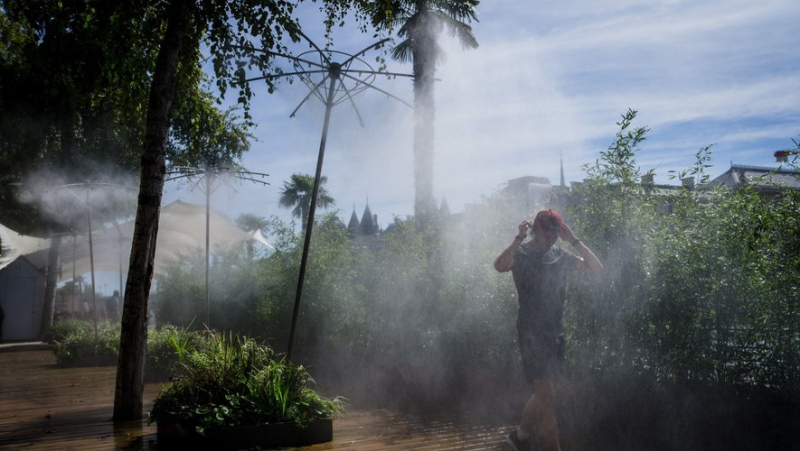We will soon exceed the 1.5°C mark of global warming: what will actually happen ?

For the first time, the 1.5°C mark has just been crossed over 12 months. But this measurement must be achieved on average over at least 20 or 30 years to be considered a climate standard. Dimitar DILKOFF/AFP
The global climate has a one in two chance of reaching in around ten years the bar of 1.5°C of warming since the pre-industrial era, the most ambitious limit of the ;#39;Paris Agreement of 2015. Why and with what consequences?
The IPCC, which brings together climate experts mandated by the UN, affirms that the years 2011-2020 were approximately 1.1°C warmer than the period 1850- 1900, before the effect of greenhouse gas emissions from the industrial revolution.
When will the 1.5°C bar really be reached ?
But with continued warming and modeling, the scientific community generally accepts that the current climate is already 1.2°C warmer.
For the first time, the 1.5°C bar has just been crossed over 12 months. But this measurement must be achieved on average over at least 20 or 30 years to be considered a climate standard.
At the current rate of emissions, this threshold of 1.5°C has a one in two chance of being reached on average over five years during the years 2030-2035, noted the IPCC in its latest report.
Certain regions of the world have already reached sustainable warming of 1.5°C: this is the case of France (+1.7°C), in a Europe which is warming twice as fast as the global average. In Australia, the Bureau of Meteorology announced on Thursday that the local climate 'has warmed by about 1.5'C'. since "the start of national measures in 1910".
Even if 1.5°C is reached globally, reducing emissions is crucial to stay below 2°C, the maximum limit of the Agreement Paris, but also to avoid each additional tenth of a degree.
Because "each increment of global warming will intensify multiple and concomitant risks", warns the IPCC, while 'a "deep, rapid and sustained" emissions "would lead to a noticeable slowdown" of warming "in the space of about two decades".
What impacts in a world at +1.5°C ?
Hotter and longer heatwaves, heavier precipitation in certain regions, synonymous with floods, and more marked droughts in others: the main effects, already visible , climate change would be further accentuated.
Heat extremes in mid-latitudes (North America, Europe, Central Asia and China) would be on average 3°C warmer, estimated the IPCC in 2018 in a special report.
Among the first irreversible damages, the corals would decline by 70 to 90%. These animals, whose reefs shelter immense fauna and protect the coasts by serving as breakwaters, would even disappear by 99% in a world at +2°C.
The increased length of the fire season and losses of biodiversity are also among the most visible early impacts of a 1.5° warmer climate ;C, according to the IPCC.
Experts also highlight the accelerated degradation of permafrost, synonymous with the potential release of significant quantities of greenhouse gases into the atmosphere. Currently rated as "moderate" by the IPCC, this degradation would be "high" in a climate of approximately +1.5°C.
Increased desertification or tree mortality are also listed by the IPCC, as is the acidification of the seas, synonymous with mortality of marine fauna and flora as well as ;a slowdown in the absorption of CO2 by the oceans, the primary regulators of the global climate.
On human life, the extent of the impacts will depend on adaptation efforts. Mortality due to heatwaves is one of the primary threats, if the cooling of habitats and the strengthening of health systems are not up to the task.
Food insecurity
Food insecurity" is another point of concern very highlighted by the IPCC. Certain effects are, as already today, irreversible, starting with the rise in water levels due to the melting of the poles, which can be slowed down but cannot be reversed. Sea levels could be between 26 and 77 cm higher in 2100 than at the end of the 20th century, the IPCC concluded in 2018, before meters of rise over several centuries.
"As for the future, it is not a question of predicting it, but of making it possible", however, warned Antoine de Saint -Exupéry, cited by the IPCC in highlighting its report on the limit of 1.5°C.




